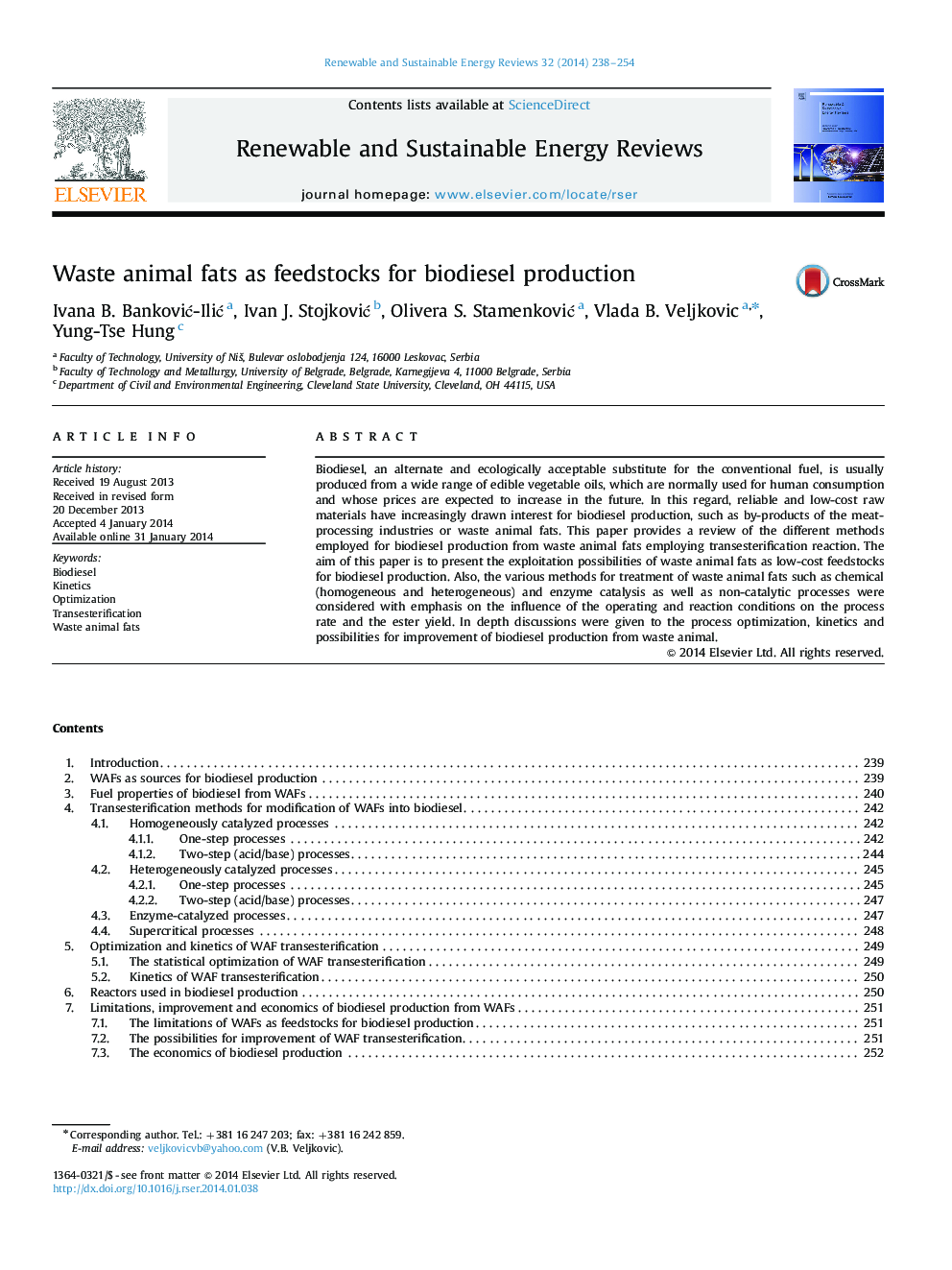| Article ID | Journal | Published Year | Pages | File Type |
|---|---|---|---|---|
| 8120075 | Renewable and Sustainable Energy Reviews | 2014 | 17 Pages |
Abstract
Biodiesel, an alternate and ecologically acceptable substitute for the conventional fuel, is usually produced from a wide range of edible vegetable oils, which are normally used for human consumption and whose prices are expected to increase in the future. In this regard, reliable and low-cost raw materials have increasingly drawn interest for biodiesel production, such as by-products of the meat-processing industries or waste animal fats. This paper provides a review of the different methods employed for biodiesel production from waste animal fats employing transesterification reaction. The aim of this paper is to present the exploitation possibilities of waste animal fats as low-cost feedstocks for biodiesel production. Also, the various methods for treatment of waste animal fats such as chemical (homogeneous and heterogeneous) and enzyme catalysis as well as non-catalytic processes were considered with emphasis on the influence of the operating and reaction conditions on the process rate and the ester yield. In depth discussions were given to the process optimization, kinetics and possibilities for improvement of biodiesel production from waste animal.
Related Topics
Physical Sciences and Engineering
Energy
Renewable Energy, Sustainability and the Environment
Authors
Ivana B. BankoviÄ-IliÄ, Ivan J. StojkoviÄ, Olivera S. StamenkoviÄ, Vlada B. Veljkovic, Yung-Tse Hung,
